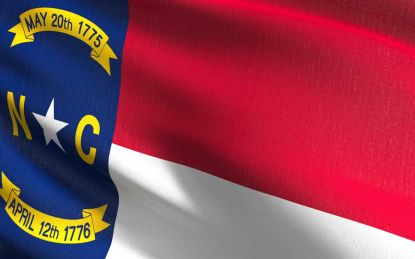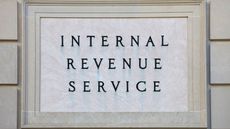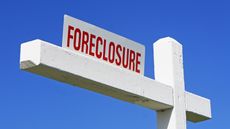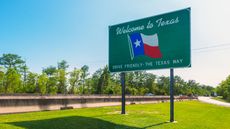North Carolina State Tax Guide
North Carolina state tax rates and rules for income, sales, property, fuel, cigarette, and other taxes that impact residents.

North Carolina State Tax: Overivew
North Carolina state tax includes a flat personal income tax rate. The state's sales taxes are generally considered to be near the national average and the state's property taxes are relatively low. North Carolina, which doesn't have estate or inheritance taxes also doesn't tax groceries, although some localities do.
[Data for this state tax guide was gathered from a number of sources including the Census Bureau, the state’s government website, the Sales Tax Handbook, and the Tax Foundation. Property taxes are cited as a rate percentage rather than the assessed value.]
North Carolina Income Taxes
North Carolina has a flat rate of 4.75% personal income tax rate. That rate is currently scheduled to drop over the next few years until it reaches 3.99 in 2027.

Sign up for Kiplinger’s Free E-Newsletters
Profit and prosper with the best of expert advice on investing, taxes, retirement, personal finance and more - straight to your e-mail.
Profit and prosper with the best of expert advice - straight to your e-mail.
- North Carolina doesn't tax Social Security benefits.
- Income from federal government retirement plans, or designated North Carolina state and local government retirement plans, is exempt if the retiree had five or more years of creditable service as of August 12, 1989. This exemption is known as the "Bailey exemption."
- Railroad Retirement benefits are also exempt.
North Carolina Sales Tax
North Carolina's state sales tax is 4.75%. According to the Tax Foundation, localities can add as much as 2.75%, and the average combined rate is 6.98%.
- Groceries: Exempt from state tax, but 2% local tax may apply
- Clothing: Taxable
- Motor Vehicles: Exempt from ordinary sales tax, but taxable under special 3% highway-use tax
- Prescription Drugs: Exempt
What are Property Taxes in North Carolina?
In North Carolina, property taxes paid are generally about .82% of assessed home value, according to the Tax Foundaiton.
North Carolina Property Tax Breaks for Retirees
North Carolina offers a homestead property tax exemption for eligible residents. The state excludes from property taxes a portion of the appraised value of a permanent residence. The owners must occupy the home and be aged 65 or older or totally and permanently disabled to qualify. There are income limits that are listed on the state's website.
North Carolina Gas (Motor Fuel) Tax
Gasoline: Taxed in North Carolina at 40.5 cents per gallon effective January 1, 2023.
Diesel: 40.75¢ per gallon effective January 1, 2023.
North Taxes on Alcohol and Tobacco
Cigarettes: $0.45 per pack of 20
Other tobacco products: 12.8% of the wholesale price (no more than $0.30 per cigar)
Vapor products: $0.05 per ml
Source: The Sales Tax Handbook
Beer: $0.62 per gallon
Wine: $1 per gallon
Liquor: $12.30 per gallon (the liquor tax is an estimate by the Distilled Spirits Council of the United States and published by the Tax Foundation)
North Carolina Estate and Inheritance Taxes
There is no estate or inheritance tax in North Carolina.
Rocky Mengle was a Senior Tax Editor for Kiplinger from October 2018 to January 2023 with more than 20 years of experience covering federal and state tax developments. Before coming to Kiplinger, Rocky worked for Wolters Kluwer Tax & Accounting, and Kleinrock Publishing, where he provided breaking news and guidance for CPAs, tax attorneys, and other tax professionals. He has also been quoted as an expert by USA Today, Forbes, U.S. News & World Report, Reuters, Accounting Today, and other media outlets. Rocky holds a law degree from the University of Connecticut and a B.A. in History from Salisbury University.
- Kelley R. TaylorSenior Tax Editor, Kiplinger.com
-
-
 IRS is Targeting Promoters of Abusive Tax Schemes Kiplinger Tax Letter
IRS is Targeting Promoters of Abusive Tax Schemes Kiplinger Tax LetterTax Letter Tax schemes range from basic tax dodges to highly complex transactions.
By Joy Taylor • Published
-
 How to Save on Prescription Medication
How to Save on Prescription MedicationHow you can save money on prescription medication amidst rising prices.
By Erin Bendig • Published
-
 States With Low and No Capital Gains Tax
States With Low and No Capital Gains TaxCapital Gains Tax Low-tax states, including states with no capital gains tax, are selling points for many people lately.
By Kelley R. Taylor • Published
-
 94-Year-Old Prevails in Home Equity Supreme Court Case
94-Year-Old Prevails in Home Equity Supreme Court CaseThe U.S. Supreme Court ruled that "home equity theft" violates the Constitution.
By Kelley R. Taylor • Published
-
 Texas Imposes New Tax on Electric Vehicles
Texas Imposes New Tax on Electric VehiclesTexans who own or buy electric vehicles will soon see their registration costs jump nearly 800%.
By Katelyn Washington • Published
-
 Half of Mothers Have Little or No Retirement Savings
Half of Mothers Have Little or No Retirement SavingsMother’s Day comes and goes, but many moms face future financial insecurity because they have little or no retirement savings.
By Kelley R. Taylor • Last updated
-
 Having a Baby Could Soon Cost Less in These States
Having a Baby Could Soon Cost Less in These StatesHaving a baby is expensive, but these states are trying to make it less costly by eliminating the tax on diapers.
By Katelyn Washington • Published
-
 The Most Expensive States to Die In (Due to Death Taxes)
The Most Expensive States to Die In (Due to Death Taxes)You probably know the cost of living in your state, but what about the cost of dying — death taxes?
By Katelyn Washington • Published
-
 Is High-Yield Savings Account Interest Taxable?
Is High-Yield Savings Account Interest Taxable?Think a high-yield savings account is a good idea? Don’t forget that savings account interest is taxable.
By Katelyn Washington • Published
-
 2023 Georgia Tax Rebates Up to $500 Are Now Being Sent
2023 Georgia Tax Rebates Up to $500 Are Now Being SentGeorgia has started sending special 2023 surplus tax refunds to eligible residents.
By Kelley R. Taylor • Published









